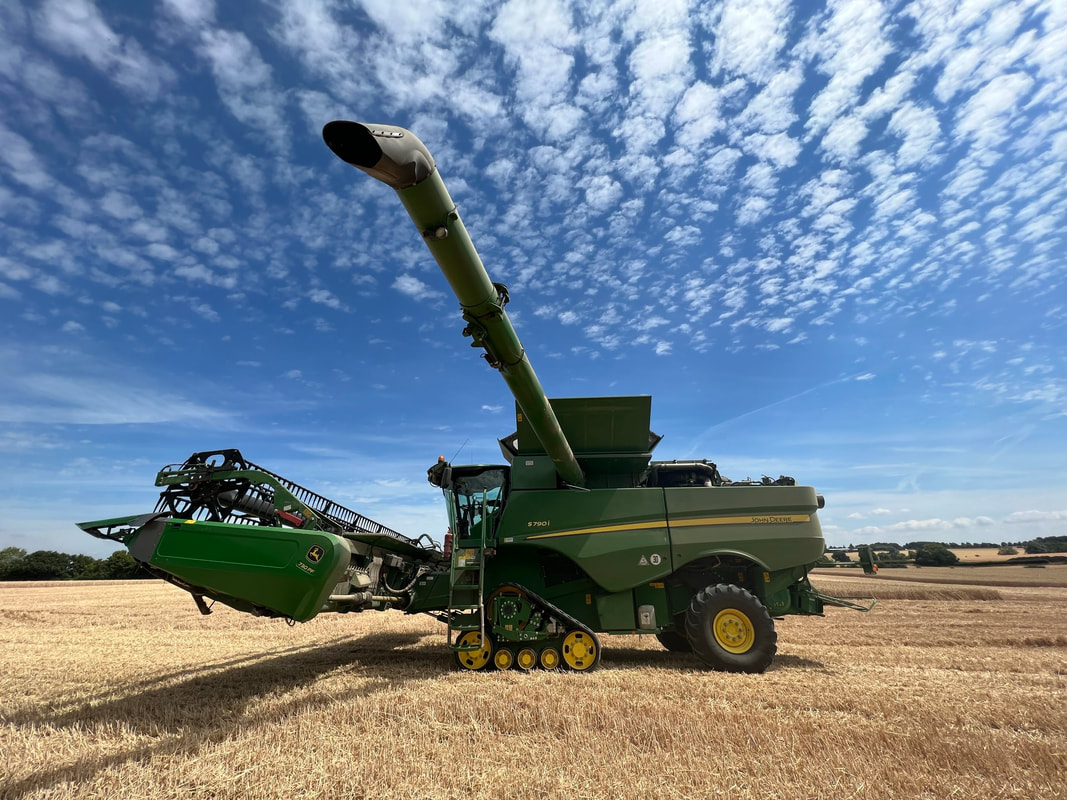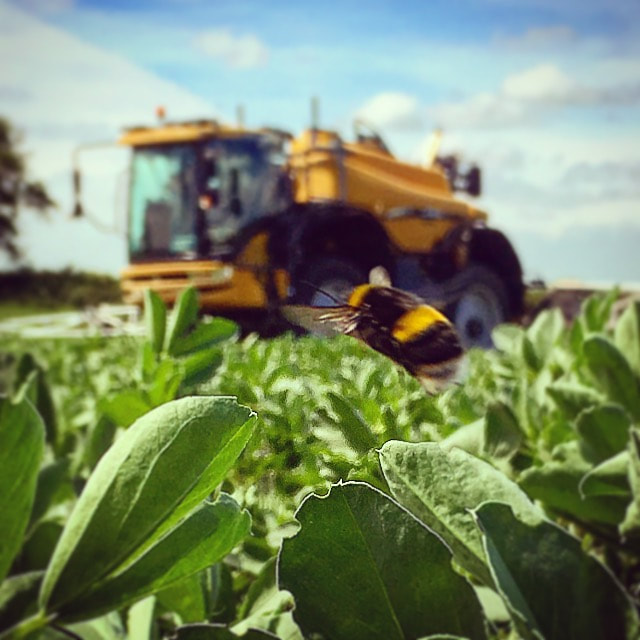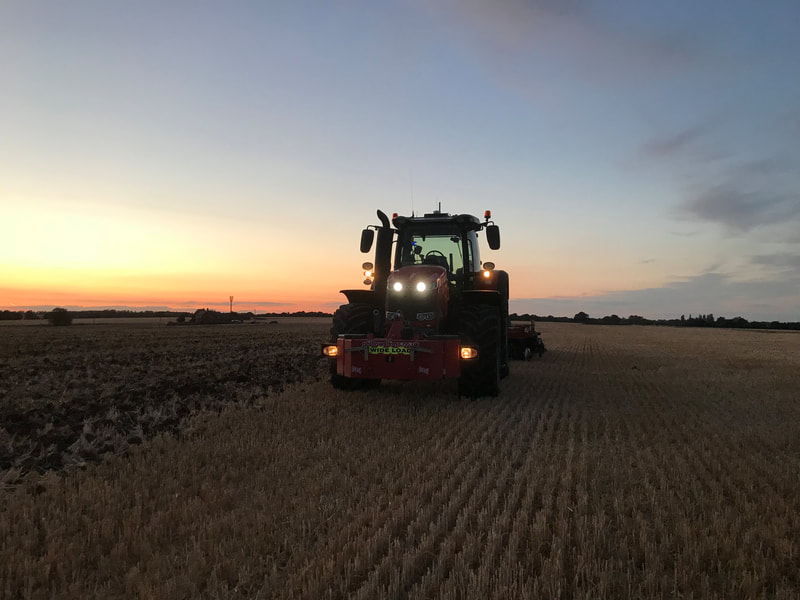We were the original 'early adopters' of whole farm contracting, starting out in 1968 with a relatively humble machinery fleet. One of the first major operations was to contract a small farm 20 miles away at Wimbish near Thaxted, and so began the long association with whole farm contracting and profit sharing which has always been the core of the business.
This takes many forms - from simple "stubble to stubble" responsibility for crop establishment, maintenance and harvesting; right up to complete supply and management of cultivations, agronomy, responsibility for ordering and financing of all crop inputs, computer recording applications and marketing of the crop.
In the former case the landowner/farmer retains full control of management and financing, in the latter the contractor does everything but in regular consultation with the farmer.
This takes many forms - from simple "stubble to stubble" responsibility for crop establishment, maintenance and harvesting; right up to complete supply and management of cultivations, agronomy, responsibility for ordering and financing of all crop inputs, computer recording applications and marketing of the crop.
In the former case the landowner/farmer retains full control of management and financing, in the latter the contractor does everything but in regular consultation with the farmer.

Because of our long association with whole farm contracting, we know all the wrinkles.
Your chief consideration should be ensuring you are getting the best return, consistently, with reliability, from a contractor you get on with!
- Beware of losing your "active farmer" status which brings large tax advantages - we can help with that.
- Beware of the contractor being over-committed and then letting you down in a difficult season, or nearly as bad, being so gung ho he is unsympathetic to you or your neighbours
Your chief consideration should be ensuring you are getting the best return, consistently, with reliability, from a contractor you get on with!
- Beware of losing your "active farmer" status which brings large tax advantages - we can help with that.
- Beware of the contractor being over-committed and then letting you down in a difficult season, or nearly as bad, being so gung ho he is unsympathetic to you or your neighbours
In the bad old days of agricultural contracting, the farmer paid the contractor to do 'x' acres of ploughing, for example. The farmer wanted the job done at optimum time, with good equipment, deep and level with all rubbish buried and for very little money.
On the other hand the contractor's objectives were almost the opposite - to make a living he had to overcommit to allow for some last minute cancellations because "I had time to do it myself" and often had to do inferior work to get by, especially if the weather was less than ideal - and wanted to make as much money as possible.
Happily, a better system has evolved. With whole farm contracting the contractor knows his annual workload within a little, and consequently can equip with the necessary tools. Importantly, both farmer and contractor achieve their income from the fortunes of farming and the crop produced, rather from each other. It works like this - the contractor is paid a fixed rate for the work done but at below cost price. The farmer draws a similar amount as a first tranche against profits at the end of the year after the contractor's fee, variable costs and any other overheads are paid. The remaining profit is split between the farmer and contractor. Often there is more than one tier of profit share, designed to encourage the contractor and to ensure farmers gain in any years with better prices.
Unless you are absolutely committed to doing the job entirely yourself, whatever the stress and financial consequences, then some level of contract farming has much to recommend it.
You could find yourself with huge amounts of free time to take up a long promised hobby, or even a second career that you always secretly hankered for and, because of economies of scale, still find you are financially better off than before.
On the other hand the contractor's objectives were almost the opposite - to make a living he had to overcommit to allow for some last minute cancellations because "I had time to do it myself" and often had to do inferior work to get by, especially if the weather was less than ideal - and wanted to make as much money as possible.
Happily, a better system has evolved. With whole farm contracting the contractor knows his annual workload within a little, and consequently can equip with the necessary tools. Importantly, both farmer and contractor achieve their income from the fortunes of farming and the crop produced, rather from each other. It works like this - the contractor is paid a fixed rate for the work done but at below cost price. The farmer draws a similar amount as a first tranche against profits at the end of the year after the contractor's fee, variable costs and any other overheads are paid. The remaining profit is split between the farmer and contractor. Often there is more than one tier of profit share, designed to encourage the contractor and to ensure farmers gain in any years with better prices.
Unless you are absolutely committed to doing the job entirely yourself, whatever the stress and financial consequences, then some level of contract farming has much to recommend it.
You could find yourself with huge amounts of free time to take up a long promised hobby, or even a second career that you always secretly hankered for and, because of economies of scale, still find you are financially better off than before.





